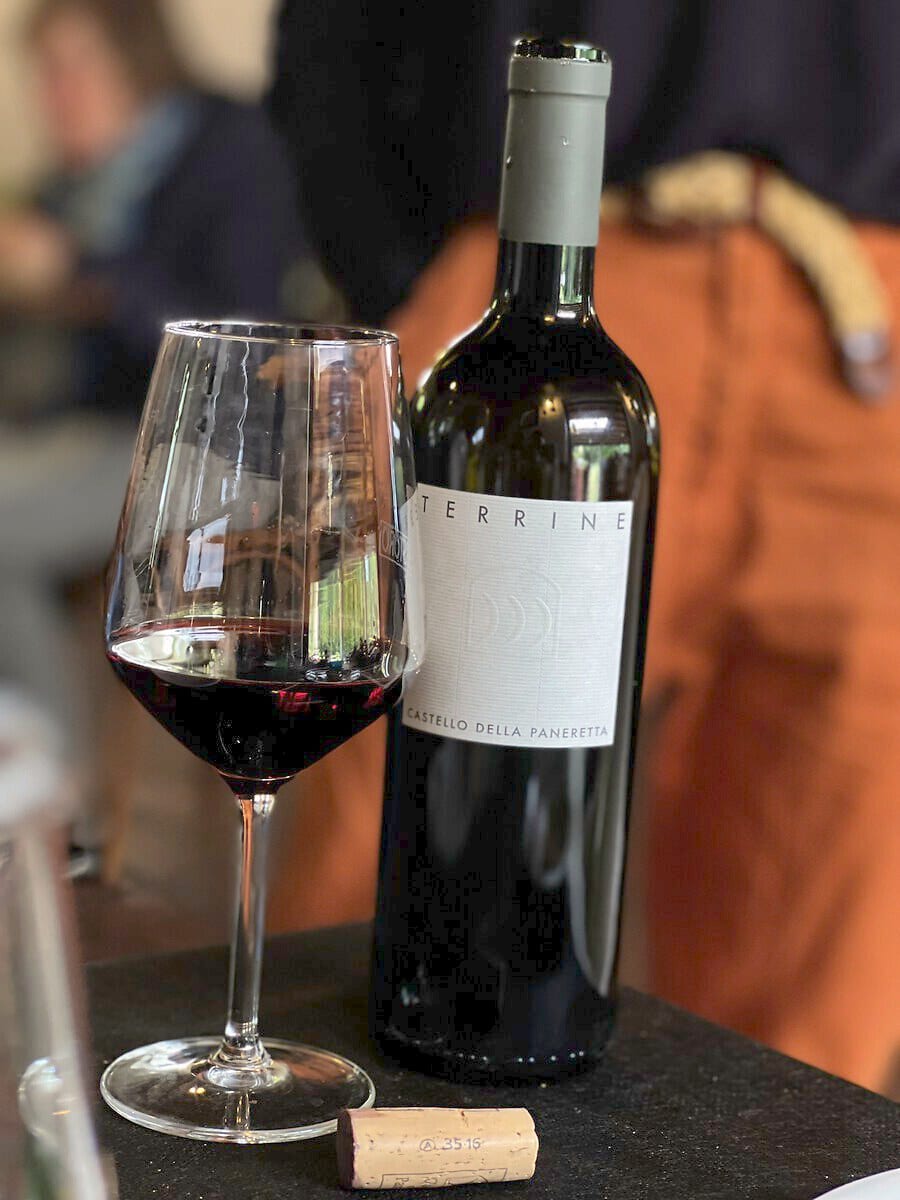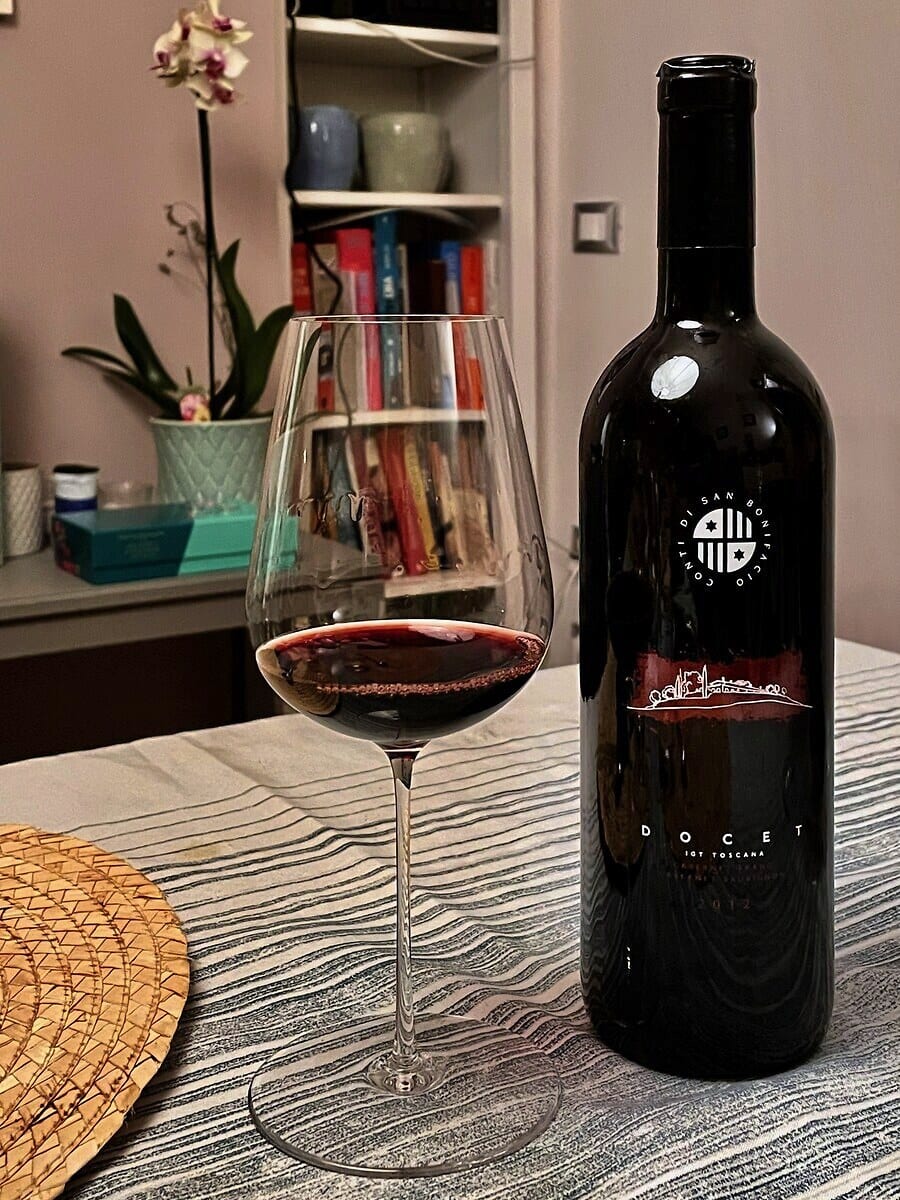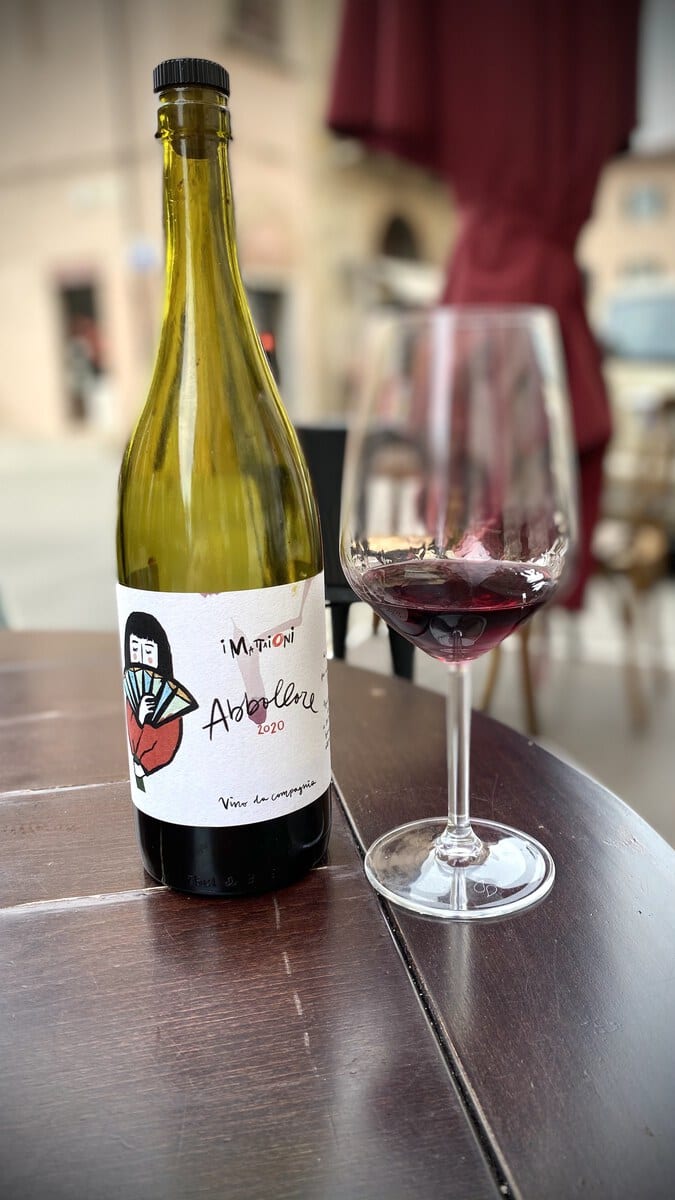Castello della Paneretta "Terrine" 2013
Sangiovese / CanaioloElegant & complex. Leather & Chocolate.
Tasting Notes
Terrine 2013 from Castello della Paneretta has a beautiful ruby colour with garnet rim.
On the nose it’s delicate and elegant with black currant and leather, chocolate and cedar wood, liquorice…
The mouthfeel is smooth yet there is freshness. The tannins are still there but they are very well integrated.
The finish is long with a pleasant toasty note at the end.

|
|
Castello della Paneretta |
|
|
Terrine |
|
|
Red & Still |
|
|
Italy |
|
|
Tuscany |
|
|
Sangiovese, Canaiolo |
|
|
2013 |
|
|
How it's made
Hand-picked, fermentation on the skins at temperature controlled stainless steel 25-27 °C for 10 days. It ages 50% French new barriques, 50% second passage for 24 months
Learn more
Tuscany
Region of Italy
Tuscany is a central Italian region with a population of 3.8 million people and an area of around 23,000 square kilometers. Florence is the provincial capital (Firenze).
Link to here... | Derived from 'Tuscany' on WikipediaWines Related To Tuscany
Conti di San Bonifacio "Docet IGT Toscana" 2012
Rich & Evolved. Underwood & Plum.
I mattaioni "Abbollore" 2020
Crispy and lively. Black cherry, liquorice & tarragon.
Sangiovese
Wine making grape
Sangiovese is a red Italian wine grape variety named after the Latin sanguis Jovis, which means “Jupiter’s blood.” Though it is native to most of central Italy, from Romagna to Lazio, Campania, and Sicily, it is best known outside of Italy as the sole component of Brunello di Montalcino and Rosso di Montalcino, as well as the primary component of the blends Chianti, Carmignano, Vino Nobile di Montepulciano, and Morellino di Scansano, though it can also be used to make varietal wines like Sangiovese di Romagna
Link to here... | Derived from 'Sangiovese' on WikipediaCanaiolo
Varietal
Canaiolo is a red Italian wine grape that is grown throughout Central Italy, but is best known for its production in Tuscany. Lazio, Marche, and Sardegna are among the other regions where Canaiolo is grown. A white berry mutation known as Canaiolo bianco occurs in Umbria. It’s always blended with Sangiovese and Colorino to make Chianti wine, and it’s a key but secondary component of Vino Nobile di Montepulciano. It has been a key component of Chianti’s history, and during the 18th century, it may have been the primary grape used in a higher percentage than Sangiovese. Its ability to partially dry out without rotting for use in the governo method of prolonging fermentation may have contributed to its popularity. Bettino Ricasoli’s Chianti recipe called for Canaiolo to play a supporting role to Sangiovese in the 19th century, introducing fruitiness and softening tannins without detracting from the wine’s aromas. Canaiolo vines did not react well to grafting onto new American rootstock after the phylloxera outbreak, and the grape eventually fell out of favor. In 2006, the total area planted with Canaiolo in Italy was less than 7,410 acres. Today, Tuscan winemakers are making new efforts to find better clonal selections and reintroduce the variety to mainstream use.
Link to here... | Derived from 'Canaiolo' on Wikipedia


